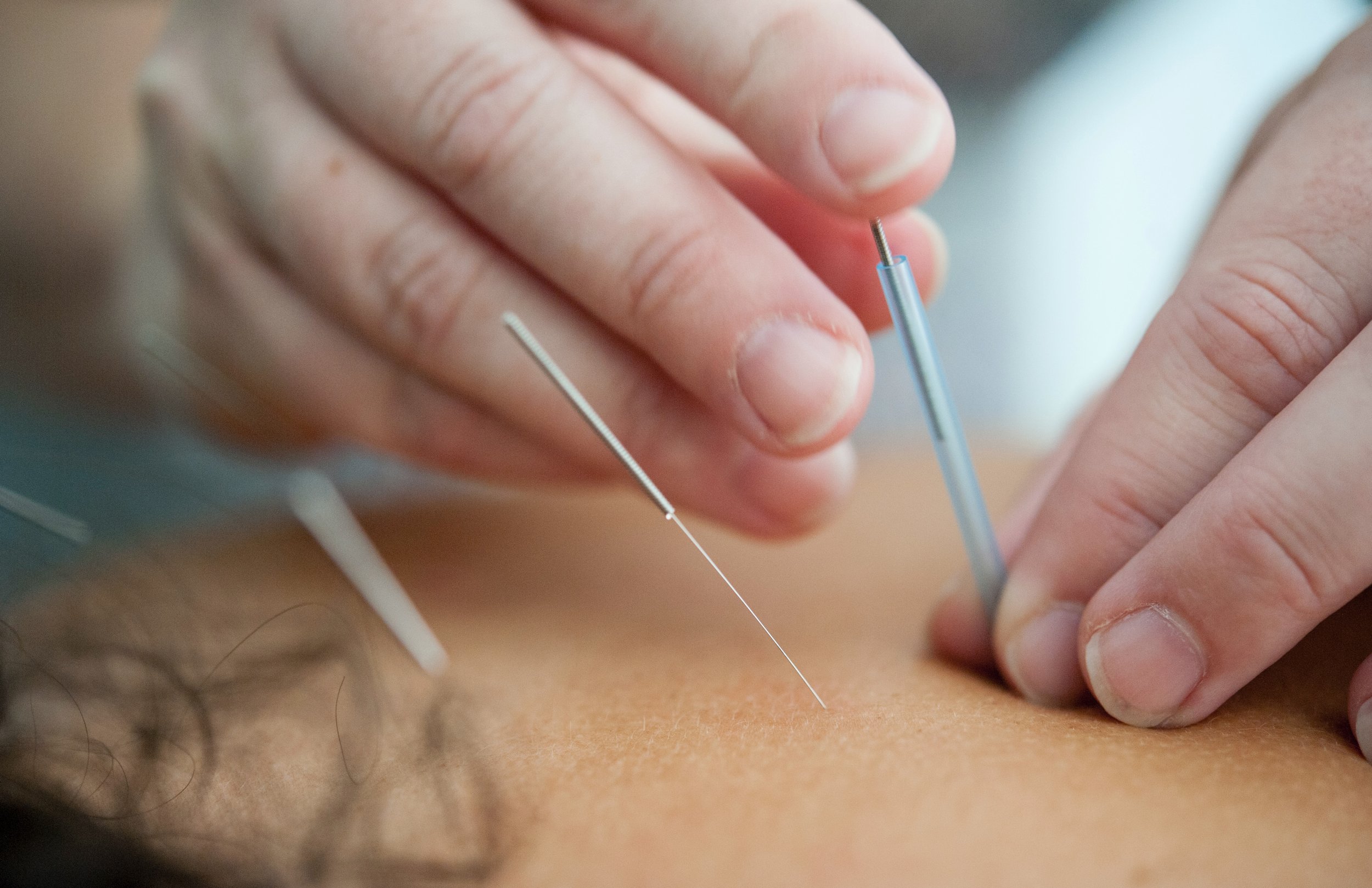
Acupuncture Services in Vancouver, BC
What is Acupuncture and How does it work?
Acupuncture is a holistic healing technique that has its roots in traditional Chinese medicine, practiced for thousands of years. It involves the insertion of very thin needles through a person's skin at specific points on the body, to various depths. This process is believed to balance the flow of energy or life force — known as chi or qi — believed to flow through pathways (meridians) in your body. By inserting needles into specific points along these meridians, acupuncture practitioners believe that your energy flow will re-balance, thereby aiding in the healing of the body. While this is the traditional explanation, scientific research has proposed several theories on how acupuncture might work from a Western medical perspective:
Immunity Augmentation: Acupuncture can boost the body’s immune system by stimulating the production of white blood cells, antibodies, and other mechanisms that help the body fight diseases. This enhancement of the immune response helps the body to heal itself and maintain its ability to fend off illnesses.
Endorphins: Acupuncture is thought to stimulate the release of endorphins, which are the body's natural painkillers. Endorphins are part of the opioid system in the body, which can help to relieve pain, reduce stress, and promote a sense of well-being. This could explain the pain relief that many experience through acupuncture.
Neurotransmitters: Acupuncture affects the release of certain neurotransmitters — chemicals that transmit signals in the brain. This includes serotonin and dopamine, which can influence mood, sleep, and overall well-being. By modulating the levels of these neurotransmitters, acupuncture can help in treating conditions like depression, anxiety, and insomnia.
Circulatory: Acupuncture can influence the circulatory system by dilating blood vessels and improving blood flow throughout the body. This improved circulation can help to bring oxygen, nutrients, and immune cells to tissues and organs, promoting healing and reducing inflammation.
Gate Control of Pain: Acupuncture may work by blocking pain signals sent from the nervous system. The theory posits that there are "gates" in the spinal cord that control the flow of pain signals to the brain. By stimulating certain points, acupuncture can close these gates and prevent pain signals from reaching the brain, thus attenuating the sensation of pain.
-

Acupuncture, a key component of Traditional Chinese Medicine, has been utilized for centuries to address a myriad of health issues, including emotional distress and physical symptoms that often accompany or result from it. By inserting fine needles into specific points on the body, acupuncture aims to restore balance and promote the natural flow of Qi, or life energy. This holistic approach can have profound effects on rebalancing emotional and physical well-being:
Emotional Distress: Acupuncture can help regulate the body's stress response, reducing the symptoms of emotional distress by promoting relaxation, enhancing mood, and mitigating the effects of stress on the body.
Depression: By stimulating certain points, acupuncture can increase the release of endorphins and other chemicals that improve mood and reduce the feeling of sadness, offering a potential complementary treatment for depression.
Anxiety: Acupuncture helps to calm the nervous system, reducing anxiety levels. It is believed to affect areas of the brain known to reduce sensitivity to pain and stress, as well as promoting relaxation and deactivating the 'analytical' brain, which is responsible for anxiety and worry.
Insomnia: Through its calming effect on the nervous system, acupuncture can help to improve sleep patterns, increasing the release of natural substances in the brain that promote rest and relaxation.
Addictions: Acupuncture assists in managing addictions by curbing cravings, enhancing patient resilience against triggers, and minimizing withdrawal symptoms.
-

Acupuncture is increasingly used to alleviate various types of pain, providing relief by triggering the body's natural painkilling chemicals and improving circulation:
Bone Pain: Acupuncture may help alleviate bone pain by enhancing local circulation, which could aid in healing. It also potentially influences the neurological system to release endorphins, reducing the perception of pain.
Joint Pain: This technique is often used to reduce inflammation in the joints and promote blood flow, which may help ease joint stiffness and improve mobility.
Nerve Pain: Acupuncture might influence nerve conduction and pain pathways, helping to calm overactive nerve impulses and reduce symptoms of neuropathic pain.
Sciatica: By targeting specific points along the affected nerve pathway, acupuncture can help relieve pain and inflammation associated with sciatica, potentially freeing restricted movement.
Cancer Pain: Often recommended as an adjunct treatment, acupuncture may help manage pain related to cancer or its treatments by stimulating nerves to release endorphins.
Arthritis: Acupuncture can be effective in reducing the chronic pain of arthritis by decreasing inflammation and improving circulation in the affected areas.
Tennis Elbow: By stimulating specific areas, acupuncture might reduce pain and inflammation associated with overuse injuries such as tennis elbow, encouraging quicker healing.
Headaches: Effective for migraines and tension-type headaches, acupuncture may inhibit pain signals and promote relaxation, thus reducing headache frequency and severity.
TMJ (Temporomandibular Joint Disorder): Acupuncture can help ease the muscle tension and pain associated with TMJ, improving jaw movement and reducing discomfort.
Fibromyalgia: This technique can aid in managing the multiple symptoms of fibromyalgia, including widespread body pain, by increasing pain threshold and possibly improving sleep and general health.
Frozen Shoulder: It can be very effective in increasing the range of motion and reducing pain in the shoulder, aiding in the recovery from this condition.
-

Acupuncture is recognized for its efficacy in addressing respiratory and immune-related conditions, and is often used as a complementary therapy:
Asthma: Acupuncture can help modulate immune responses and reduce inflammation in the airways, which may ease symptoms of asthma. It also encourages relaxation, thus potentially helping to alleviate the constriction of airway muscles.
Sore Throat: By stimulating points known to reduce inflammation and boost immunity, acupuncture can provide relief from sore throat pain. It is also believed to stimulate saliva secretion, which can help soothe irritation.
Cold/Flu: Through its purported immune-boosting effects, acupuncture may help the body fight off viral infections more effectively. It is also used to relieve symptoms such as fatigue, fever, and body aches associated with colds and flu.
Headaches: Acupuncture is often used to relieve tension and migraine headaches. It may work by inhibiting pain signals in the nerves, reducing inflammation, and promoting the release of endorphins, the body’s natural painkillers.
Sinusitis: By targeting specific points, acupuncture may reduce sinus inflammation, enhance nasal drainage, and relieve the pressure and pain associated with sinusitis. It also aims to address the underlying immune imbalances that may lead to chronic sinus problems.
Rhinitis: Similarly, acupuncture may alleviate nasal congestion and sneezing related to rhinitis by decreasing inflammation of the nasal passages and boosting the body's immune response to allergens.
Ear Infections: While not a substitute for conventional antibiotics in the case of bacterial infections, acupuncture can complement treatment by reducing pain and supporting the immune system's function to clear the infection.
Allergies: Acupuncture may modulate the immune system's response to allergens, which could decrease the severity of allergic reactions. It’s also suggested that acupuncture can reduce inflammation and alleviate symptoms such as itching, swelling, and redness.
-

Acupuncture stands as a beneficial treatment option for a gamut of gastrointestinal and digestive issues, leveraging its capacity to restore balance within the body and enhance its natural healing mechanisms:
Nausea: Acupuncture has been shown to reduce the severity of nausea by influencing the areas of the brain and body that control the vomiting reflex. This makes it particularly effective in postoperative settings or for those undergoing chemotherapy.
Vomiting: By calming the stomach and correcting disharmonies that lead to vomiting, acupuncture can decrease the frequency and intensity of this unpleasant symptom, providing relief to sufferers.
GERDs (Gastroesophageal Reflux Disease): Acupuncture helps to regulate the movement of the digestive tract, reducing acid reflux and the sensation of heartburn associated with GERDs by enhancing lower esophageal sphincter function.
Gastritis: By reducing inflammation and promoting healing in the stomach lining, acupuncture can alleviate the discomfort and bloating associated with gastritis, helping to normalize stomach function.
Diarrhea: Acupuncture can regulate intestinal motility, striking a balance that can mitigate the frequency of bowel movements in those suffering from diarrhea, addressing both the symptom and underlying disharmonies causing it.
Constipation: Similarly, it can stimulate digestive function and bowel movement, offering relief for constipation by targeting points that enhance gut motility and fluid balance in the intestines.
-

Acupuncture, a key component of traditional Chinese medicine, is believed to work by normalizing the flow of energy, or qi, through the body and by influencing the hormonal and circulatory systems in order to help with conditions related to women's health and reproductive issues:
Infertility: Acupuncture is often used in combination with other infertility treatments. It is theorized to improve blood flow to reproductive organs, balance hormone levels, and reduce stress—all factors that may contribute to increasing fertility.
PMS (Premenstrual Syndrome): The practice can aid in relieving the symptoms of PMS, such as mood swings, cramps, and headaches, possibly by promoting relaxation and alleviating stress, which can exacerbate these symptoms.
Menstrual Disorders: Acupuncture may be beneficial in addressing a variety of menstrual issues, including irregular cycles, painful periods (dysmenorrhea), and heavy bleeding. It's thought to regulate the hormones responsible for the menstrual cycle.
Menopause: For menopausal women, acupuncture provides a non-hormonal treatment option. It might help balance estrogen levels, reducing common symptoms like hot flashes, night sweats, and mood fluctuation.
Incontinence: Acupuncture could strengthen pelvic muscles and control, potentially improving both stress and urge incontinence by stimulating nerve growth and bladder function.
Hot Flashes: It has been shown in some studies to reduce the frequency and severity of hot flashes by affecting the thermoregulatory functions of the body, perhaps linked to its influence on endorphin levels.
Night Sweats: Similar to how it addresses hot flashes, acupuncture might ease night sweats by helping regulate the body's internal thermostat through neurological and hormonal pathways.

Deep inside there is a place for joy and peace. You deserve to find them in you.
